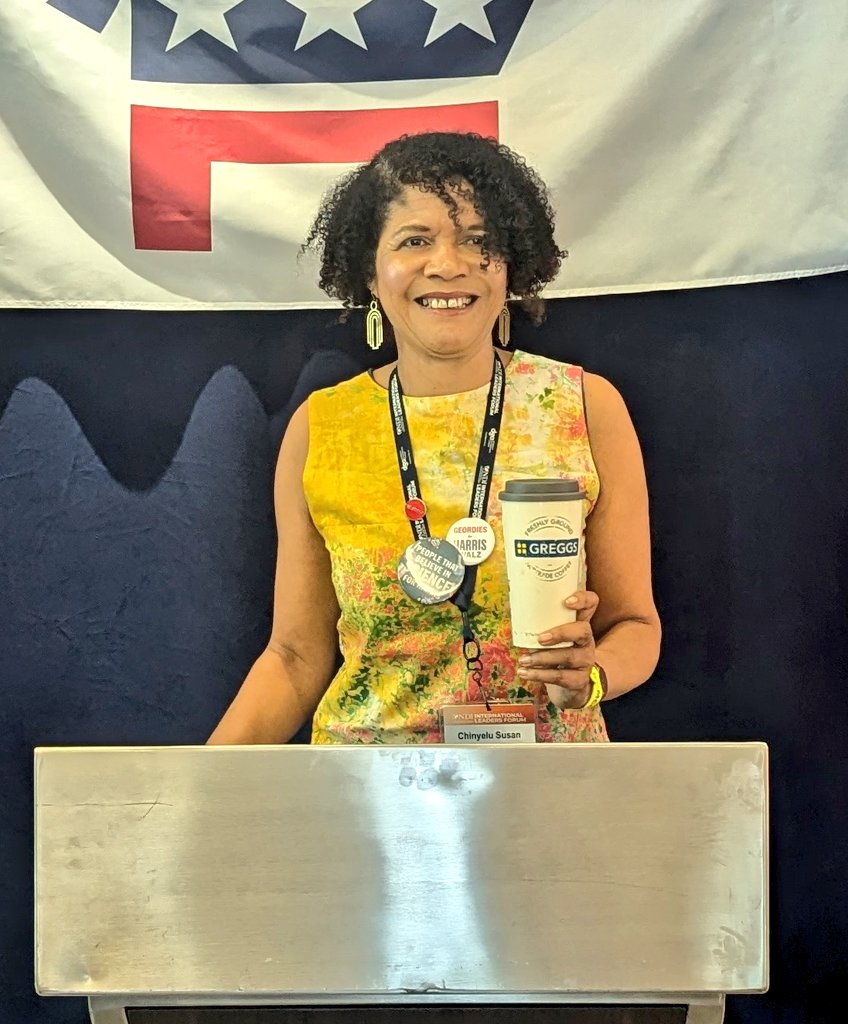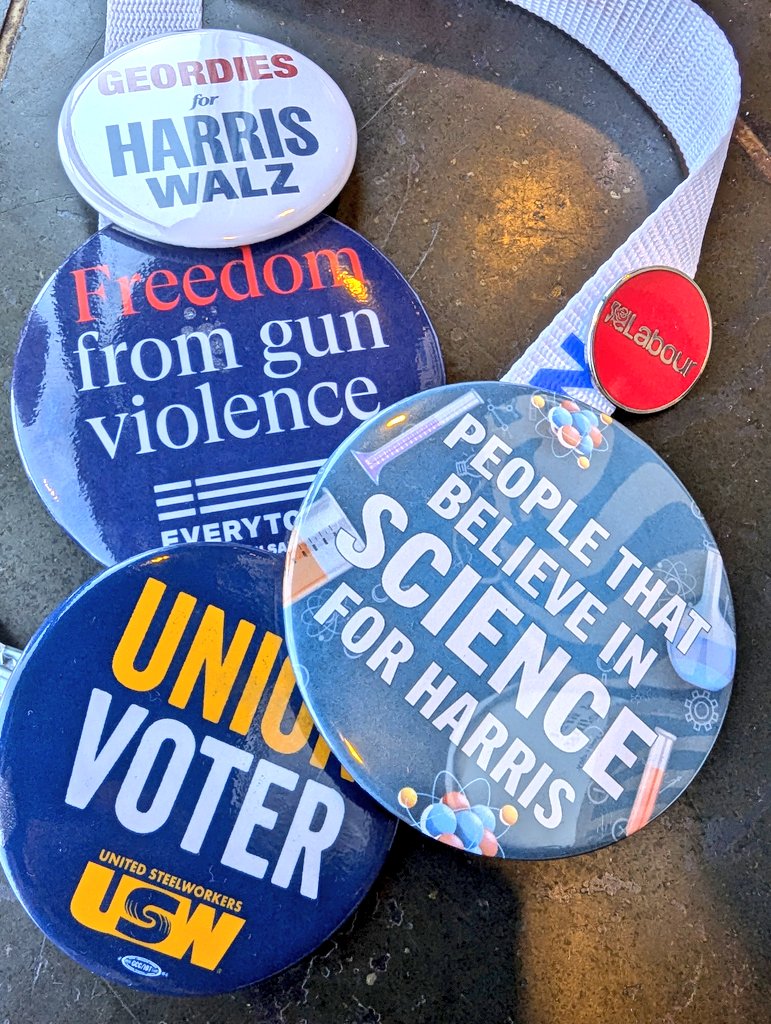DNC diary: '50,000 people all on the same side! But where was the fear of losing?'
Democratic National Convention (DNC) in Chicago on August 22, 2024 (Credit: Mike Segar/UPI/Alamy Live News)
7 min read
My biggest mistake was landing in Chicago at the same time as President Biden. Half an hour earlier and all would have been fine, the extraordinarily polite and helpful US diplomatic security men at O'Hare airport told me, but the President’s detail would shut the city down.
Three hours later I finally arrived at the hotel, missing the welcome, orientation, accreditation and onward transportation. I have to admit that even with an email inbox full of introductions, I was wondering why I was there at all. My instinct is that one party conference a year is enough – I have huge admiration for the journalists who make it through three or even more.
But when the British American Parliamentary Group offered me the chance to join our sister party in our nation’s closest ally and the world’s most powerful nation, a nation with deep and varied ties to Newcastle and the Northeast, I felt I had to say yes.
50,000 people all on the same side! But where was the fear of losing?!
That was before Biden dropped off, Kamala Harris stepped up and Tim Walz joined the ticket. After that, total strangers buttonholed me when they found out where I was headed, and friends and colleagues alike envied me.
That buzz was shared by the Ugandan-American taxi driver who took me to my first convention event. “You have come to support Kamala,” he said. He hadn’t been going to vote at all in November. “But when Biden handed over the torch, I said to myself I will go register and vote for my sister.”
Illinois is not a swing state – far from it. But the polls suggest that a significant proportion of the previously unenthused are swinging behind the Harris-Walz ticket. Significant because the election is so close, Donald Trump’s lead of five points has dropped to two to three as I headed to the convention but the Democrats need a lead of around five points to be confident of winning.
That first night, hearing from President Biden, former first lady, secretary of state and presidential candidate Hillary Clinton, and seeing an array of US trade union leaders, several of whom were friends of mine, performing on a gigantic screen as if they were Taylor Swift, I felt like I was at a Newcastle match at St James Park. Match day food and crowded corridors, the flag waving and chants – “USA”, “When we fight we win”, “We love Joe” – the brilliant star players, 50,000 people all on the same side! But where was the fear of losing?!
For a Labour conference regular, it was an experience. What, they spend the evening cheering on their greatest speakers and leaders rather than compositing motions or debating policy detail? But there was a surprising breadth of political viewpoints. AOC and Bernie Sanders, both far to Harris’ left, had prime speaking slots. There were also speakers clearly to Harris’ and Walz’s right within the Democratic Party and at least seven Republicans.
 Chi Onwurah at the DNC
Chi Onwurah at the DNC
Over the course of the convention I found out I was wrong about the lack of policy; there were serious discussions away from the convention floor, in fringe events across the city. I sat in on two debates on the role of privatisation in education policy – one hosted by the Progressive Policy Institute, on the right of the Democratic Party, and another hosted by the American Federation of Teachers, the first US trade union to endorse Kamala Harris’ presidential bid – that had a very different perspectives.
Like most British people, I find the prevalence of guns and mass shootings in America incomprehensible, and I know from working with Northumbria police on knife crime the terrible toll the violent end of the promise of a single teenager takes on a community. So I was truly inspired by the determination of the Everytown for Gun Safety movement. As one speaker put it, 10 years ago gun control was the third rail, elected officials ran away from it; now many are leading on it.
On the convention floor itself, a very powerful moment came when three sets of speakers, men and women, told how the US Supreme Court’s reversal of Roe v Wade had impacted them. In particular a woman spoke who had been forced by the state authorities to carry her dead baby to term at substantive risk to her own life.
Delegates did have a formal role: at the (very late) end of each day’s speeches, they voted on a motion to adjourn, which was the signal for the gavel to come down. As I headed for the hotel the moment the last speaker finished (and sometimes before!), I missed that and all the post-gavel parties, which were many, varied and different levels of wildness, but I did meet up with many US political and labour movement friends to get some of the gossip.
My time in the Governor’s Lounge with the Democratic governors of various US states and their staff was a real window into the power politics of the US federal system, and the large part of the US political structure that isn’t federal at all. And as an MP from a great metalworking region, I particularly enjoyed the company of my sisters and brothers in the US United Steelworkers union.
 Chi Onwurah's badges
Chi Onwurah's badges
It was clear from the lack of merchandising in the many DNC pop up stores that the Harris-Walz ticket had taken people by surprise. In the end I got my own “Geordies for Harris-Walz” buttons made. But the ticket also took political careers by surprise. In the US, governors, who are at the top of the non-presidential political order, generally have term limits. And many may have been planning for a 2028 presidential run, whether Biden or Trump won this year. But a Harris victory will mean she is the candidate in 2028, and there was the screeching sound of alternative political routes being found.
Our current Parliament is the most diverse ever, and yet what was really striking for a British politician was the breadth and depth of diverse talent showcased on the Democratic platform, particularly women of colour – elected and otherwise from across the country, speaking powerfully and effectively. The best speeches of the week came from two women of colour, Michelle Obama and Kamala Harris. Michelle, with her hair in braids for the first time at a political rally, gave perhaps the best political speech I have ever heard – passionate, emotional, authoritative, instructive (“do something”) and funny. And she did it without giving the impression it was about her. Kamala’s speech demonstrated how far she has come from that failed presidential run of 2020; she hit every point with confidence and authenticity.
But though President Obama began by saying he was the only person stupid enough to follow Michelle Obama I found his speech a thoughtful reflection of the evolution of the party. We must listen more to each other, he said. There was no condemnation of deplorables here, but a recognition we need to work together for a shared, brighter future.
I came away thinking of the United States as the indispensable democracy, and as our nation’s closest ally, and just how important it is for us here in the UK that the US remain both the vital democracy that I saw at work in Chicago and that we find ways to work together to address the urgent challenges that face both our countries and the larger world – the threats of climate change and authoritarianism, the promise and the dangers of technology, and the need for an international order that can support stable democracies and broad based prosperity.
In Chicago I saw an America that can be our partner and the world’s partner. Even with the traffic chaos, I felt much better about our future as a world community than when I arrived.
Chi Onwurah is Labour MP for Newcastle upon Tyne Central and West
